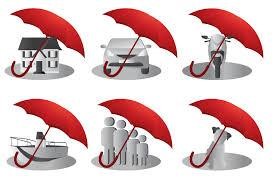 ATC
ATC
What is Insurance?
Insurance is a means of protection from financial loss. It is a form of risk management primarily used to hedge against the risk of a contingent, uncertain loss. All insurance provides protection to consumers by covering certain risks and promising to pay for financial losses caused by these risks. Risks that are coverable by insurance are known as “Insurable risk”.

Insurance Policy in Nigeria
There are six kinds of insurance policies that must be obtained and retained in Nigeria. They are:
Statutory Group Life Insurance as required by Section 9 (3) of the Pension Reform Act, 2004.
Employee’s Compensation (which replaced Workmen Compensation) as required by Section 33 of the Employee’s Compensation Act, 2010.
Occupier’s Liability Insurance as required by Section 65 of the Insurance Act, 2003.
Motor Third-Party Insurance as required by Section 68 of the Insurance Act, 2003.
Builder’s Liability Insurance as required by Section 64 of the Insurance Act.
Health Care Professional Indemnity Insurance as required by Section 45 of the National Health Insurance Act, 1999.
Classes of Insurance and Their Relative Usefulness
Health insurance is insurance that pays for medical expenses. In each case, the covered groups or individuals pay premiums or taxes to help protect themselves from high or unexpected healthcare expenses.
Home insurance can protect your residence from both natural disasters and man-made accidents. They offer a compensatory price for damage to property and life in the home.
Auto insurance protects one against vehicle damage and third party cases of accidents.
Life insurance is protection against financial loss resulting from death.
General insurance
Fire, holders Insurance
